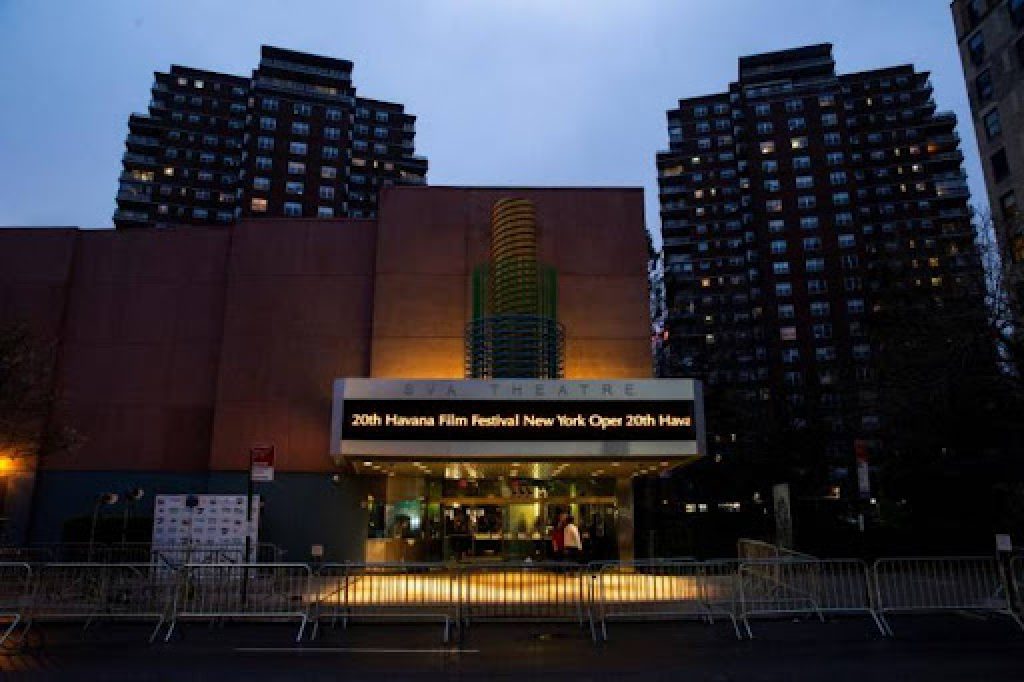The Havana Film Festival in New York returns after the pause due to the pandemic from November 5 to 11, with a program of 36 films from 12 countries and the inclusion for the first time of cinema made in Spain, which will bring to the city to the director Iciar Bollaín with her film “Maixabel” at the closing ceremony.
“This year we opened the Festival to include Spain because more and more collaborations with Latin America are making important films about Latinos,” commented Diana Vargas, its artistic director.
According to Vargas, this 21st edition of the Festival wants to present films that represent a dozen Ibero-American countries, with “themes that can produce laughter, create uncomfortable moments or deep reflections to perceive and get closer to the realities of Latin America and/or of their immigrants. “
Until now, the Festival, which is held for the first time in November due to the delay due to the pandemic, exhibited films made in Latin America or by Latinos living in the United States, but the inclusion of Spain is explained by the fact that there are more and more Latinos making films in Spain.
The Havana festival will pay tribute to the Cuban Enrique Pineda Barnet, who died last January at the age of 89, (1933-2021), writer, journalist, screenwriter, actor and director, director of the award-winning film “La Bella del Alhambra” . that received fifty national and international awards.
Pineda Barnet made his debut as a director with the film “Giselle” (1963), in which he collected the masterful performance of the Cuban dancer Alicia Alonso in the homonymous ballet and which will be presented at the Festival after being remastered.
“It is a film that mixes fiction and documentary and has become a benchmark for avant-garde cinema in the world,” said Vargas.
Homage will also be paid to Juan Carlos Tabío (1943-2021), co-director of classics of Cuban filmography such as “Fresa y Chocolate” along with Tomás Gutiérrez Alea, “Guantanamera” or the classic “Se permuta”, which will also be presented at the Festival.
Tabío, who also died last January at the age of 77, and one of the fathers of contemporary cinema on the island, made 41 documentaries and fiction films.
The Festival will kick off on November 5 with the Colombian film “The forgetfulness that we will be” directed by Fernando Trueba, a drama based on the true story of Colombian human rights activist Héctor Abad Gómez.
The film is based on the book written by his son, Héctor Abad Faciolince, who will be in New York for its presentation.
In the Central American cinema section, in the year in which these countries celebrate 200 years of their independence, films from Honduras “90 Minutes” and from Guatemala “1991” will be presented. Mexico will also be present with “Nudo Mixteco” as well as Argentina from where “El Perro Que no calla” will arrive, whose director Ana Katz will be there for its presentation.
Vargas also highlighted among the films the documentary “Latin Noir” about crime novel writers in Latin America as well as “Una casa sin Cortinas”, a documentary about Isabel Perón.
He also pointed out that 19 of the films will compete for the Havana Star Prize, which is awarded on the last night of the Festival, with which the best fiction film, the best documentary, the best actor, the best actress, and the best script are recognized.
For the first time this year, all screenings, forums, and special events will take place at the Village East Cinema in Manhattan.
